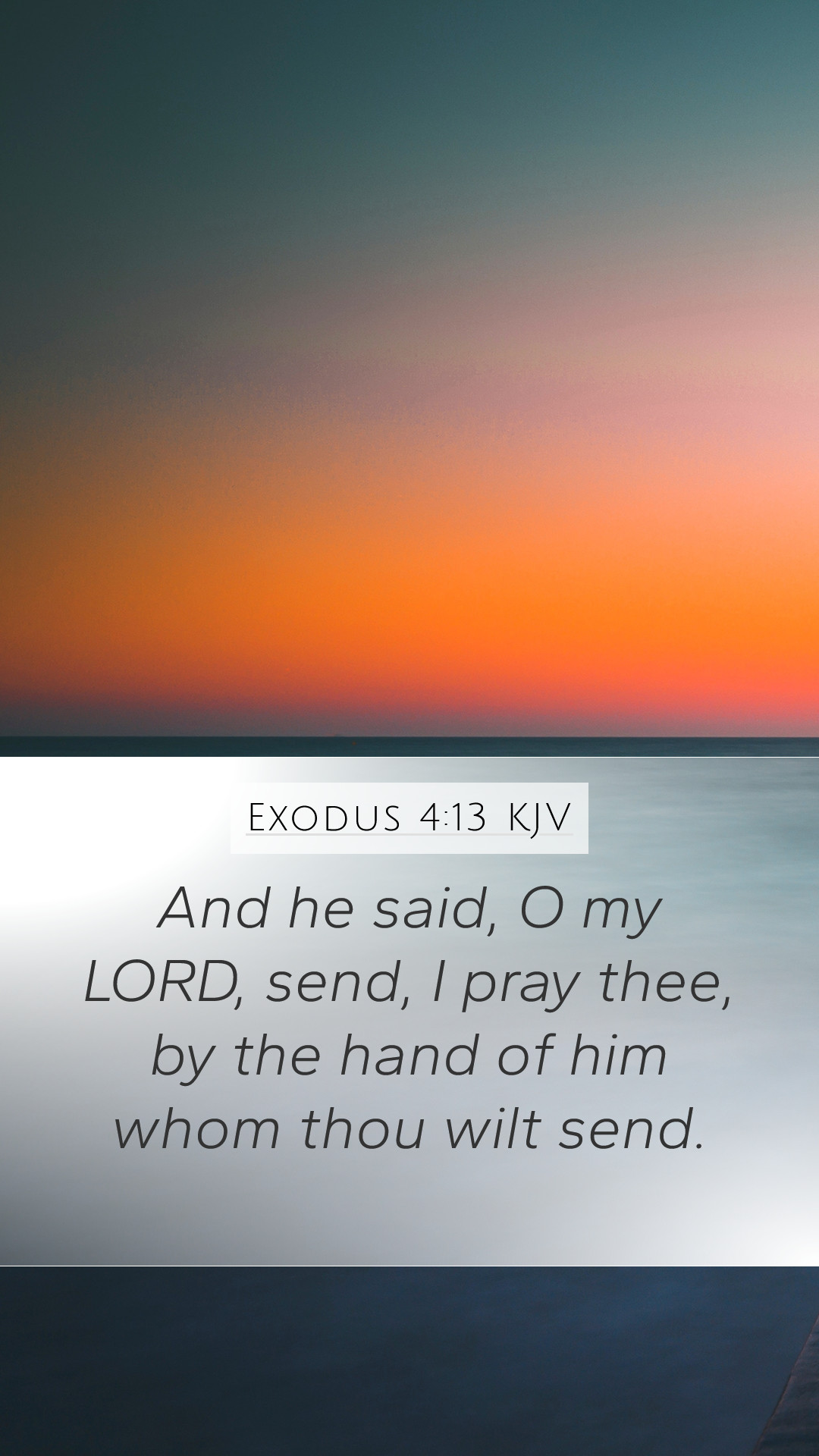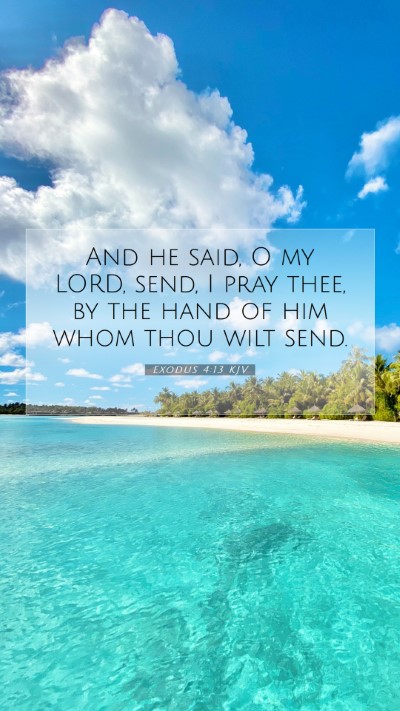Bible Verse Commentary on Exodus 4:13
Verse: Exodus 4:13 - "But he said, 'O my Lord, please send someone else.'" (ESV)
Understanding Exodus 4:13
This verse captures a moment of profound reluctance and hesitation in the narrative of Moses’ call. The response of Moses reflects a common human tendency to shy away from responsibilities that seem overwhelming. Despite the divine reassurances provided to him, Moses expresses his fear and self-doubt by pleading with God to appoint someone else for the task of leading the Israelites out of Egypt.
Bible Verse Meanings and Interpretations
In examining this verse, public domain commentaries reveal several significant insights:
-
Matthew Henry's Commentary:
Henry emphasizes Moses' reluctance and his plea to be excused from this mission. He interprets this as an example of human weakness in the face of divine calling and suggests that such reluctance can often stem from a lack of faith in one’s own abilities or in God’s provision.
-
Albert Barnes' Notes:
Barnes provides a contextual analysis, noting that Moses felt inadequate to fulfill the role God had for him. He compares this moment to other Biblical instances where individuals questioned their calling, demonstrating that feeling unworthy or unprepared is a recurring theme in Scripture.
-
Adam Clarke's Commentary:
Clarke points out the depth of Moses' crisis in this moment. He delves into the psychological aspects of Moses’ attitude, indicating that his fear reflects a larger struggle with his identity and purpose, especially considering his upbringing and the perceived burdens of leadership.
Key Themes and Insights
The reluctance demonstrated in Exodus 4:13 offers various themes worthy of exploration:
-
Human Reluctance:
Our response to God’s calling can often be fraught with hesitation. This verse invites believers to reflect on their own hesitations in accepting God’s purposes for their lives.
-
Divine Assurance:
The context of this verse shows God’s persistent encouragement. Even when we feel unqualified, God provides everything necessary to carry out His will.
-
Understanding God’s Calling:
Exodus 4:13 serves as a reminder that understanding God’s calling can take time and reflection. It encourages seeking clarity, guidance, and the courage to step forward in faith.
Application to Daily Life
Understanding Exodus 4:13 is crucial for modern believers as they navigate personal and communal responsibilities. Here are some applications derived from this commentary:
-
Reflection on Personal Callings:
Consider your own life. Are there areas where you feel God is calling you but you are hesitant? Reflect on Moses' example and seek God’s guidance in overcoming fear.
-
Community Engagement:
Involve yourself in community efforts. Like Moses, we can be called to help others. Overcoming reluctance can lead to profound impacts in your community.
-
Faith and Trust in God:
Use this verse to bolster your faith. Recognize that feeling inadequate does not negate God’s ability to use you. His calling is accompanied by His provision.
Cross References
This verse is closely related to several others in Scripture that deal with divine calling and human reluctance:
- Jeremiah 1:6 - Jeremiah expresses similar reluctance when called by God.
- Isaiah 6:5 - Isaiah’s reaction to God’s call and his sense of unworthiness.
- 1 Samuel 16:1 - God’s choice of David, despite his outward appearance.
Conclusion
Exodus 4:13 is a poignant reminder of the struggle between divine calling and human apprehension. By studying this verse within its broader context and through the insights of respected commentators, believers can gain a deeper understanding of their own hesitations in spiritual matters and how to approach fears with faith.
In summary, this verse encourages reflection on how we interpret the call of God in our lives, the significance of understanding Scripture, and the importance of community in engaging with difficult passages. Whether in personal Bible study groups or online platforms, Exodus 4:13 is a rich verse for discussion and contemplation in Biblical exegesis.


